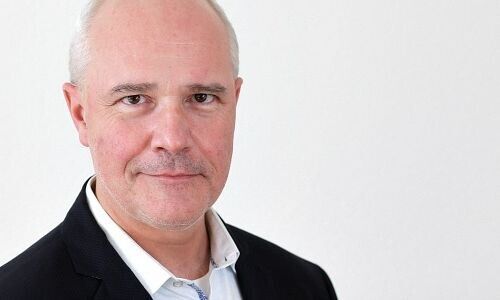Claude Baumann: «Singapore is Back»
We always strive to keep our content relevant based on competent and credible journalism, finews.asia Founder Claude Baumann says in an interview with fundplat.com. We now have more than 300,000 unique users a month, which means we have a considerable readership in the industry. And our numbers continue to rise, he adds.
Claude Baumann, finews.ch is recognized as the leading online portal for employees in Swiss finance. In recent months, there has been a very strong and noticeable increase in the number of advertisements from highly reputable sources in both the commercial and lifestyle sectors. What has been the driving factor behind this?
Our editorial focus on financial themes is a key contributor, which gives us a clearly defined readership. Our advertisers reach 100 percent of their targeted audience directly with no loss of bandwidth or wastage.
Another decisive element is the fact that we now reach more than a million unique users a month with finews.ch and finews.com (in English). And we always strive to keep our content relevant based on competent and credible journalism.
Does that mean you have not felt much impact from the negative financial market sentiment?
We really can’t complain, at least until now. In fact, the opposite is true. This year has been the best in our 13-year history. But the threat of an impending recession and the continued difficult geopolitical situation around the world is a reminder that we should remain cautious and prudent.
«I believe that we have a unique value proposition»
At the same time, I believe that we have a unique value proposition. Our well-researched articles are an important component of the Swiss financial sector media landscape, both abroad and domestically.
Advertisers are now thinking long and hard about how and what messages to place in the current environment, and where they want to be present. Our reputation – and our presence – helps a great deal with that.
Your readership is probably less aware that another one of your services, finews.asia, is growing strongly. But the truth is that you can’t easily reach Singapore by train. Why have you strayed so far from home?
About seven years ago, we started thinking about where to expand next. We quickly rejected Germany and Austria, as they do not have a comparable business culture in banking, at least not compared to the Swiss one. Instead, we decided to follow the Swiss banks to Asia and we founded a subsidiary in the growth market of Singapore.
We were quickly and handsomely paid back for that decision and the work involved in getting the service up and running. Before the pandemic, we managed to become profitable, which gave us a buffer during the subsequent, widespread lockdowns across the region. Those restrictions have now started to fall. Singapore is back.

(In Singapore in February 2020, image: Ivan Schultheiss)
There is a great deal of optimism in the air. The financial hub in the city-state is profiting greatly from its stability, dependability, and quality, particularly given the geopolitical uncertainty we are seeing worldwide. We want to participate in that. In a way, Singapore is our so-called hedge should the situation get worse in Europe.
When you get off the plane, what is the first thing that you notice apart from the tropical heat?
You immediately notice a positive attitude, openness, and a certain welcoming culture, particularly if you are here on business. There is a «can do» attitude. The atmosphere is inspiring, it makes work a pleasure.
«When it comes to projects, the speed of implementation is enormous»
There is no so-called culture of envy that you frequently encounter in more northerly latitudes. The Swiss community in Singapore is a relatively large, close-knit one. It has provided a good source of support and has helped us to bring a quality product to life.
In short: Does Singapore do things better than Switzerland?
It certainly does in certain areas. It is commonly referred to as «Switzerland in Asia» or even an «improved Switzerland». The willingness to serve is unparalleled. When it comes to projects, the speed of implementation is enormous and the ability, particularly in finance, to be at the summit of worldwide innovation, is extremely interesting, particularly for us.
On the other hand, I appreciate our liberal consciousness in Switzerland, our direct democracy, and the fact that not everything is organized in a top-down fashion. It can be easier to be entrepreneurial. But I try to combine the best of the two worlds, and each country has plenty of advantages.
Aren’t the Ukraine war and the paralyzing impact of the European energy crisis significant issues here?
Ukraine is far away from Singapore. The fact that we are seeing such a war in Europe in the 21st century does not have the same impact that it does in Switzerland.
«Hong Kong will remain a hub, but it will be increasingly driven by the mainland»
On the other hand, a conflict in Taiwan would have a far higher impact on Asia than it would on us. The energy crisis has not been an issue in Singapore until now. But it would have a very far-reaching impact were there to be one, particularly given how much electricity is needed to feed all the air conditioners in the city.
Hongkong was the leading hub in Asia for decades. Is Singapore catching up?
Yes, from an international perspective. Hong Kong will remain a hub, but it will be increasingly driven by the mainland. Many western financial institutes will increasingly struggle to find a place there.
That also explains the quasi-tectonic plate kinds of movements we are seeing regarding companies and assets moving from Hong Kong to Singapore.
A good indicator of wealth is the number of family offices. Are there any statistics for that in Singapore?
Yes. Singapore improved the overall framework for family offices entering the city-state significantly during the pandemic. It was also a way to efficiently market the financial hub’s services.
«Strictly separating the editorial and commercial sides is the secret to the success of our business model»
About five years ago there were about 50 family offices in Singapore and now there are about 800, with another 600 waiting to receive a regulatory license. That clearly underlines the long-term trust Singapore has as a destination in Asia.
Can you talk about the business model of finews.asia in somewhat more detail? Is it a copy of finews.ch?
Yes, when it comes to the basics. finews.asia and finews.ch are financed by advertising. Editorial content is completely independent and the source of the business.

(finews.asia event with Henley & Partners in Singapore in October 2022, image: HP)
Strictly separating the editorial and commercial sides is the secret to the success of our business model and one that we can launch and scale in any financial center. We proved that recently with finewsticino.ch. In the near future, it will be interesting to see what we can do with an online platform in the Middle East.
You are known as a cosmopolitan person. Have you been able to get in touch with locals in Singapore or do you only drink beers in the evening with other Europeans?
Singapore citizens are complete foodies. Eating and drinking are part of their culture and have a very prominent position in daily life. Everyone goes out together, whether for a beer or a buffet dinner. I don’t know of any culinary tradition that is not available in Singapore.
Can your office help when a Swiss financial institution wants to get a foothold or expand in Singapore?
We can certainly help them build a brand that is recognizable in Southeast Asia. We have more than 300,000 unique users a month on finews.asia, which means we have a considerable readership in the industry. And our numbers continue to rise.
«It is also then that I realize how privileged we are»
We always look at what is going on, what the trends are, and we are always open to advertisers.
A last but very personal question. Can you live for months in Singapore or are you very happy to get on a Swiss flight and return to Zurich?
It is easy to have a good life in Singapore. Some things are clearly appealing and inspiring here. They are different from those in Switzerland, and the latter also can’t be ignored. So, in that fashion, I am always happy to get on a Swiss flight back to Zurich. It is also then that I realize how privileged we are as Swiss citizens.
Claude Baumann was born in 1962 in Zurich. Although he is currently a renowned media entrepreneur, he previously worked at the «Weltwoche», «Finanz und Wirtschaft» and «Handelszeitung» newspapers. He was also a co-founder of the Nagel & Kimche literary publishing house. In 1989, he launched the business travel magazine «Arrivals». He founded «finews.ch» in 2009, which has subsequently grown to become the leading online portal for Swiss finance sector employees. In Asia, he established «finews.asia» in 2016, which is based in Singapore with an office in Hong Kong. A year ago, he started the Italian language website «finewsticino.ch». Claude Baumann is the author of several books, the last being a biography of Swiss banker Robert Holzach.




















